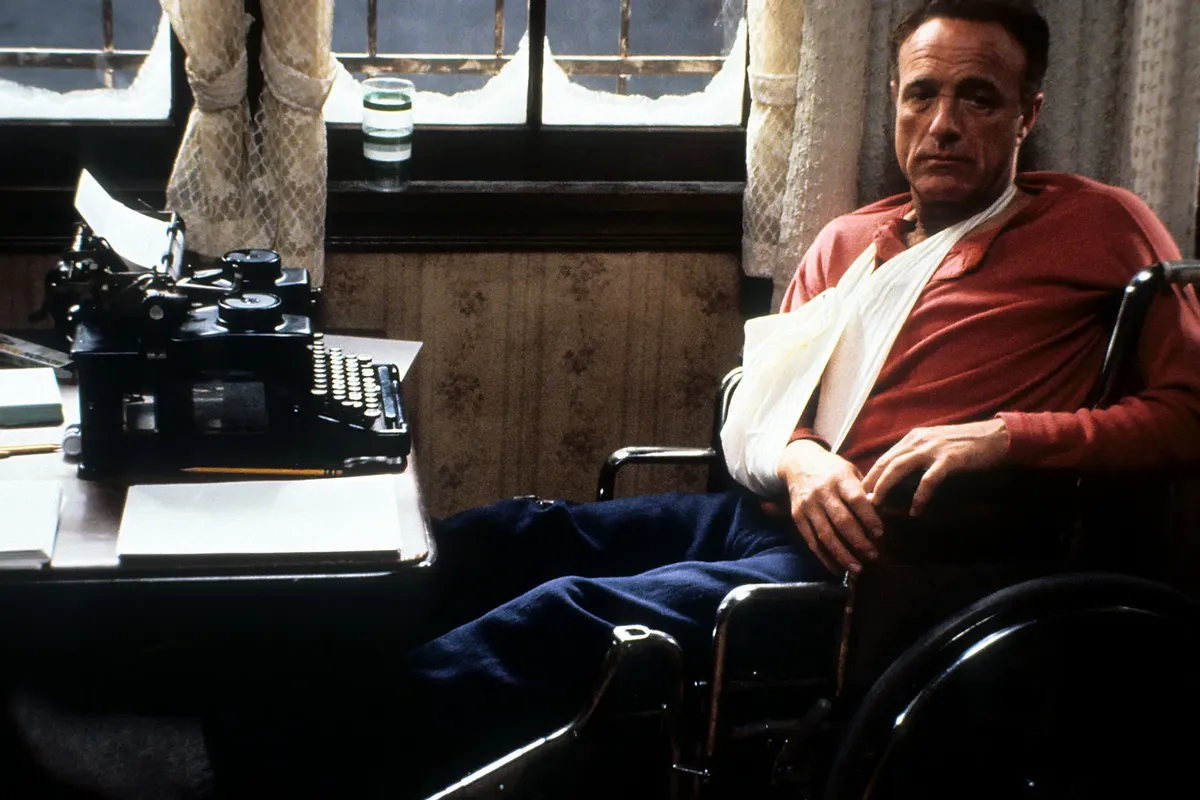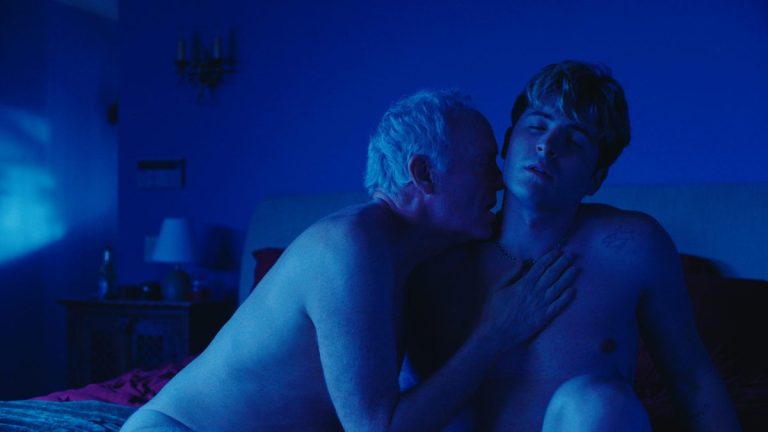Stephen King’s 1987 novel Misery, inspired from King’s battle with substance abuse, is widely regarded as one of his most compelling and consistently terrifying works. According to Stephan King, Kathy Bates’ character personifies his dependency on drugs and repercussion of drug fixation – making him feel alone, pushing him in solitude, while drug taking control all over him. King very meticulously captures his self inflicted pain and weaves a tale about a best selling author held captive by his self proclaimed “number one fan”.
Paul Sheldon (James Caan), a celebrated and successful popular novelist for the romantic ‘Misery’ series, is suffering from what might be called writer’s block. To break his monotony of writing only romantic series, he attempts to write serious stories, ending with the most lovable character, who also happens to be the lead protagonist of his Misery series, Misery Chastain, in his latest manuscript. On his way back to his home, he is caught in a blizzard, and his car goes off the road &, leaving him with two splintered legs. Paul is saved by a resourceful nurse, Annie Wilkes (Kathy Bates), who digs him out and carries him to her isolated home for nursing until phone lines are up and snow-blocked roads are cleared for an ambulance.
Annie Wilkes has read every line Paul Sheldon has ever written, and she claims to be his number one fan. Quite evidently, it is established in the later part when the local store owner tells the cop that Annie always had reserved her first copy of Paul’s novels. Just to heighten the intensity of her ‘fanboy-ism,’ she goes berserk after realizing that her favorite character, Misery Chastain, has been killed in the manuscript of his latest work. Now ,she holds him as a prisoner, and Paul, laid up on the bed with both legs injured, has nothing working in his favor and has to survive at the mercy of Annie.
‘Misery’ literally inflicts on both the characters in the film. Annie is inflicted with the pain that Paul has killed the character of Misery, while Paul is in physical and psychological pain, tormented by Annie’s manipulative & psychotic behavior. While also trying to show the symbiotic relationship between a celebrity & fan, quite literally and symbolically. It emphasizes how sometimes fictional characters become so dear that it blurs the wafer-thin line between fiction and nonfiction for their fans, and if those characters are ill-treated, it can push their fans to an extent on them being deranged (George R R Martin you better see this film, and think zillion times before you even think of mercilessly killing Tyrion Lannister).
Annie Wilkes screams in anguish, “Misery can’t be dead; she has to be alive.” It is ironically humorous that Paul had to bring back Misery Chastain to keep himself alive. And on top of that, he had to go through the misery to keep himself breathing.
Annie Wilkes is a lonely sole who derives entertainment from Sheldon’s written fantasies, she even named her pig ‘Misery’. Bates flawlessly slips into the character of any common fan of any celebrity, immaculately captures the nuances of an ardent fan, and almost like jelly, she transits her initial passive aggression into psychotic by the end.
Misery functions like suspense and psychological horror that taps into very common fears of human beings. What can the obsession of a fan lead up to? What if a captivated writer is forced to write against his will? How do you survive when you are living at the mercy of your captor? Misery rests on a chilling and plausible predicament.
The only flaw in the film is that the gradual realization of the horror of Paul’s plight in an isolated cabin is hinged in a perfunctory manner. But then, that is just nitpicking in this almost flawless film that gives us the nastiest nurse character since Louise Fletcher in One Flew Over the Cuckoo’s Nest.
Misery has a great story, it even plays out on the screen quite naturally. Rob Reiner does adapt the film honestly to its source material. That is the reason why Stephen King wanted Rob Reiner to either direct or produce Misery, as he was impressed with Reiner’s Stand by Me (1986).
Misery has a subtle tone to its horror element that might not appeal to those who are looking for anything like Carrie and The Dead Zone. It closely resembles King’s other novel-based film ‘The Shining’ in its low-key tone horror derived from a person slipping into paranoia.









